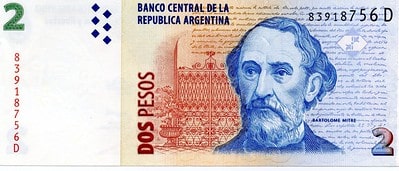Contractual Waivers of Foreign Sovereign Immunity
The Foreign Sovereign Immunities Act (FSIA) provides that foreign states are immune from suit in the United States unless an exception applies. An important and long-standing exception to immunity is consent (the more common term in international practice) or waiver (the term used in the United States). The FSIA provides that a foreign state shall…
Continue ReadingEnglish Court Finds No Sovereign Immunity in Spyware Case
The English High Court has applied a statutory exception to foreign sovereign immunity to claims arising from the alleged use of spyware by a foreign state to target and monitor dissidents in the United Kingdom. It is the first case to find an exception to sovereign immunity for allegations relating to spyware. In doing so,…
Continue ReadingImmediate Appeals in Foreign Sovereign Litigation
Foreign governments have many advantages in litigation. Chief among them is sovereign immunity. Under the Foreign Sovereign Immunities Act, foreign states and their agencies and instrumentalities are immune from suit in United States courts unless the case falls within one of the statute’s specific exceptions to immunity. That substantive immunity also confers important procedural advantages. …
Continue ReadingNew Scholarship on the Argentinian Sovereign Debt Litigation
For more than a decade in the early 00s, Argentina’s $100 billion sovereign debt default dominated the transnational litigation news headlines – and, indeed, global financial news. Hundreds of cases were filed against Argentina in U.S. courts with long-term implications for foreign sovereign immunity and foreign direct investment. Many of those cases were consolidated before…
Continue ReadingRussia Should Not be Designated a State Sponsor of Terrorism
Editor’s Note: This article also appears in Just Security.
Members of Congress and President Zelenskyy of Ukraine have called for U.S. Secretary of State Antony Blinken to designate Russia a state sponsor of terrorism, and late last month the Senate Foreign Relations Committee reported out a resolution to this effect. The designation would have important…
Continue ReadingA Primer on State Law in Transnational Litigation
The procedural and substantive rules that U.S. courts apply in transnational litigation come from many sources, including the U.S. Constitution, international treaties, customary international law, federal statutes, federal rules, and federal common law (both preemptive and non-preemptive)—but also, state statutes, state rules, and state common law. This primer focuses on the underappreciated role of state…
Continue ReadingThrowback Thursday: International Association of Machinists v. OPEC
In 1978, the International Association of Machinists (IAM), a labor union, sued OPEC and its member countries for violating U.S. antitrust law by operating a cartel. The district court held that OPEC countries were immune from suit under the Foreign Sovereign Immunities Act (FSIA). On appeal the Ninth Circuit affirmed the district court’s dismissal on…
Continue ReadingThrowback Thursday: The Tate Letter and Foreign Sovereign Immunity
Seventy years ago this week, Department of State Legal Adviser Jack Tate wrote to Attorney General Philip Perlman to announce a sea change in State’s litigation practice vis-à-vis foreign sovereign immunity. The so-called “Tate Letter” informed the Department of Justice that State would shift from the “classical” approach to sovereign immunity to what’s known as…
Continue ReadingA Primer on Foreign Official Immunity
Foreign official immunity refers to rules of international and domestic law that shield foreign officials from suit and from criminal prosecution. These rules are related to the rules of foreign sovereign immunity, codified in the U.S. Foreign Sovereign Immunities Act (FSIA), but they differ from those rules in many respects. Rules of foreign official immunity…
Continue ReadingHavlish Plaintiffs File a Potentially Misleading Brief Claiming Entitlement to Afghan Central Bank Assets
The 2021 return of the Taliban to power in Afghanistan has led to litigation in the United States over the assets of the Afghan Central Bank (“DAB”). As I explained in an earlier post, an executive order by President Biden froze about $7.0 billion in DAB assets held in New York. A license from the…
Continue Reading



